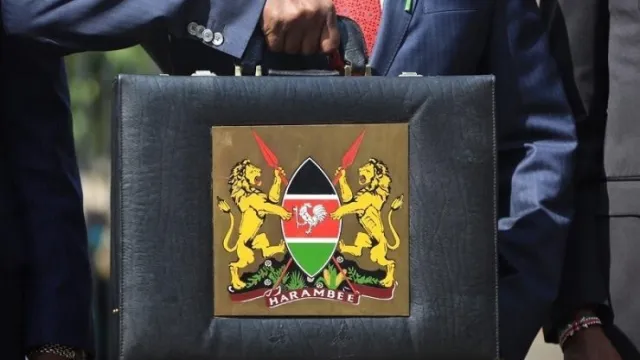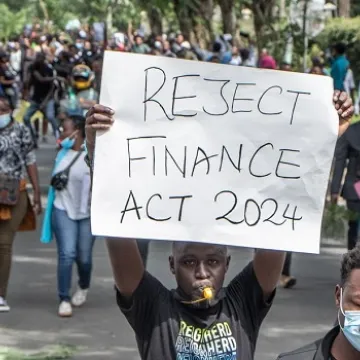KRA weathers muted economy to collect Sh1 trillion in five months

The first five months of the current fiscal year were marked by difficulties including economic slowdown triggered by protests against the Finance Bill 2024, which muted business activities between June and August.
The taxman has collected KES1.005 trillion in revenue in the five months to November 2024, reflecting an increase of 4.3 percent compared to KES963.746 billion collected in the same period in the previous financial year.
The first five months of the current fiscal year were marked by difficulties including economic slowdown triggered by protests against the Finance Bill 2024, which muted business activities between June and August.
According to the Kenya Revenue Authority (KRA) both customs and domestic tax segments registered an increase in collections during the months under focus.
KRA collected KES359.571 billion in customs revenue, reflecting a 5.9 percent increase compared to its collections during the comparable months in FY2023/24.
At the same time, collections from domestic taxes increased by 3.5 percent to close at KES643.79 billion on November 30, the taxman said in an update.
"In spite of the progressive growth, the collection was affected by various economic indicators that directly drive revenue collection. The Various indicators that significantly impact on revenue performance have generally moved contrary to expectations, with adverse impact on revenue mobilization," the statement by KRA's Commissioner, Strategy, Innovation and Risk Management noted.
KRA has been tasked with collecting a total of KES2.704 trillion in the current fiscal year set to end on June 30, 2024. The taxman sought to collect KES2.768 trillion by the end of the financial year 2023/2024, a target which was later revised downward to KES2.5 trillion. However, the authority missed the target.
According to KRA, however, collecting KES1.005 tillion as of 30th November, 2024 reflects an "upward trajectory in revenue collection," compared to the agency's performance in FY2023/2024, when the it achieved the same milestone on 7th December 2023 with KES1.009 trillion.
KRA cited muted domestic demand and austerity measures across government as some of the factors that slowed collections during the period.
Kenya's private sector business activity has remained slow between June and August, attributable to a revolt against the government when protesters pushed for the withdrawal of Finance Bill 2024 among other reforms in governance.
Overall, the Purchasing Managers Index (PMI) averaged at 48.94 points between July and November, a signal that economic activities were on a downward spiral across the country.
What's more, KRA noted that there was "modest growth in overall import values of goods by one percent in the five months of 2024/25, which is a main source of both raw materials and final consumer goods."
In December 2023, the KRA blamed a huge loss—about 24.7 percent—in the value of the Kenya shilling against the US dollar, especially in November 2023, and an earlier 22 percent shave between July and November last year as major challenges that affected the economy and, therefore, revenue collections.
In June, Fitch Ratings warned that anti-government protests could undermine plans to finance the FY2024/25 budget, potentially leading to severe economic consequences.
The rejection of Finance Bill 2024, implies that the government will likely struggle to raise the projected revenue, thereby increasing the fiscal deficit. Fitch Ratings revised Kenya's deficit forecast for FY2024/25 to 4.3 percent of GDP, indicating less confidence in the government's ability to meet its revenue targets.





